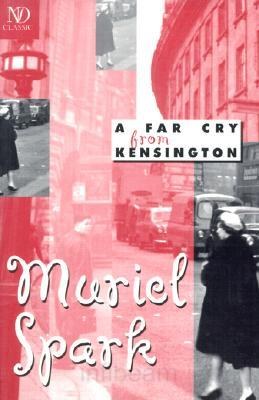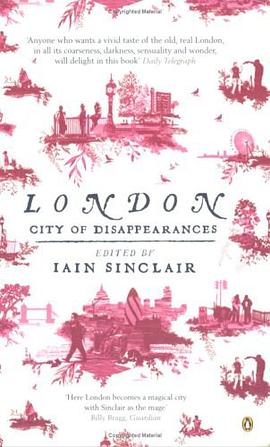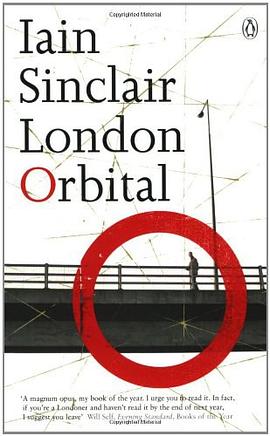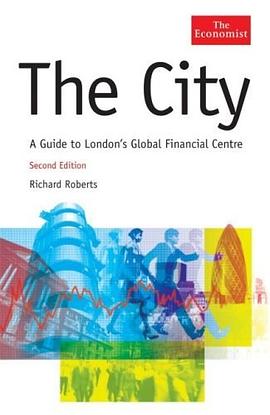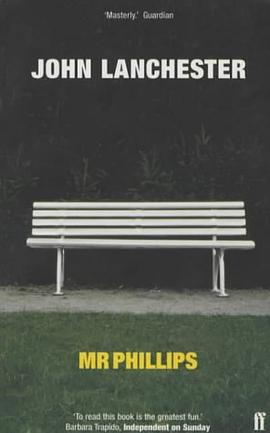

Book Description
One Wednesday morning Mr Phillips climbs out of bed and prepares for his commute into the city. But it will be no ordinary day for the cautious middle-aged accountant; it will be, he later realises, the first day of the rest of his life - whether he likes it or not. From the author of THE DEBT TO PLEASURE.
Amazon.com
Elegant, demonic, obsessive, John Lanchester's The Debt to Pleasure won the Whitbread Award for first novel, was short-listed for many others, and was translated into a dizzying number of foreign languages. Its narrator, Tarquin Winot, displays an encyclopedic knowledge of food and haute cuisine, and must surely be one of the first fictional "foodie-killers." The author's second novel, Mr Phillips, is in a very different key. The eponymous protagonist, a 50-year-old London accountant, has lost his job but hasn't told his family. He leaves for work as usual on Monday morning, and finds himself wandering aimlessly around the city, taking it all in. So the odyssey begins.
A statistician and inveterate quantifier, Mr Phillips likes to give marks out of ten for things (including sexual dreams), a habit that has especially humorous consequences when he visits the Tate Gallery. A Gaudier-Brzeska head: seven out of ten; The Boyhood of Raleigh: five. His thoughts on Millais's Ophelia are typical: "If she had drowned surely she wouldn't be floating on her back like that? Certainly that wasn't how drowned people looked on TV. Six out of ten." Mr Phillips's judgments may lack sophistication, but they are often hilariously apt, and above all true to his personality. He has a penchant for mental arithmetic, and speculates about how many women in England pose nude for magazines and tabloids (16,744, he deduces). He isn't exactly sex-obsessed, but he illustrates dramatically the notion that men think about sex a great deal of the time.
His thoughts also meander in many directions: How many people on a London bus have never been on the river Thames? What would the financial accounts of the Battersea Park authorities look like? Standing on Chelsea Bridge, he calculates the speed at which a suicide would hit the water. Is this litany of seemingly trivial arithmetical puzzles a response to the trauma of unemployment, or is it a heightened version of the mind games we all privately play? Mr Phillips is extremely observant and insightful--he should have given up accountancy long ago. He is good on old age and especially good on death: "But the thought that you would be aware of what was going on as you died implied that somewhere in his future was a moment of the purest terror, terror at 200 proof, so that you could have a small taste of the fear every time you let your mind touch on the subject, even for a second or two."
Reviewers have already been talking about literary influences--Woolf, Joyce, Wells--but John Lanchester's mesmerizing second novel has a cumulative power and brilliance all its own.
--Jonathan Allison
Amazon.co.uk Review
Fiftysomething Victor Phillips is a senior-ish accountant with respected City firm Wilkins & Co. Or rather, he was: unbeknown to his sons, his saintly wife and his nosy suburban neighbours, Mr Phillips has lost his job, and doesn't know what to do next. So what he does do is the most sadly predictable: pretend he's still in work. On the morning of the day's events that comprise the entirety of this novel he rises as per, breakfasts as per and steps out into the city, as per. From then on, though, he embarks on a bizarre odyssey around London, doing various sad, strange or aimless things: if he's not ogling schoolgirls on buses, he's being accosted by nutters in the Tate or trying to meet TV celebs during a bank robbery.
Taken as read, the whole might sound odd: a Diary of a Next To Nobody. What saves from the book from being weirdly boring is Lanchester's skill in capturing Mr Phillips' inner voice: as the ex-accountant schleps around town he is constantly working out, for instance, how many women take their clothes off for money, or how much more likely it is one will die on any given week than win the National Lottery (about 3,000 times more likely). All this is very witty and very well done--and very much the meat of the book. If the novel is ultimately aimless, that is, of course, the point. John Lanchester has taken an average day in an averagely tragic life and made from it, if not great art, a readable, amusing and perceptive novel.
--Sean Thomas
From Publishers Weekly
Second novels--especially those appearing in the wake of bestselling debuts--present a particular challenge to writers. Following up The Debt to Pleasure with a solid purposefully prosaic tale of a middle-class Englishman, Lanchester acquits himself honorably. Victor Phillips is a 50-something everyman with two sons; a long, comfortable marriage; and a stultifying position as an accountant. Suddenly, on a Friday afternoon, Phillips finds himself downsized. He cannot bring himself to tell his wife, and sets off for work on Monday morning as usual. Taking a train into London, he wanders around, invites his adult son to lunch, visits a porno theater, then endlessly ruminates about the plot of the movie. When he is not musing on sex, he sinks into Walter Mittyesque daydreams or ponders the vagaries of fatherhood and his uncomplicated childhood. The only action occurs when his bank is robbed while he is standing in line. As in The Debt to Pleasure, plot is not paramount, but here the all-important detail is more domestic than exotic. In making a relentlessly ordinary man his hero, Lanchester risks losing himself in the banal. But when he hits the mark, he achieves a sharp-edged clarity. Phillips's wry observations--"We wouldn't care so much what people thought of us if we knew how seldom they did," or "When you are young, sex is It, when you are older, death is"--balance his recurring lists and calculations, as when walking in Battersea Park, he "feels the long-suppressed need to draw up a tranquillising double-entry." As soothing as a bill of accounts, and periodically much more stimulating, this stylishly written novel makes it clear that Lanchester is more than a one-hit wonder. BOMC featured alternate; audio rights to Simon & Schuster; author tour. (Apr.)
From Booklist
It takes real courage and talent to write a novel about an unexceptional man living an unremarkable life, but Lanchester pulls it off with grace and wit. On a Monday morning just like any other, Victor Phillips, a 50-year-old accountant, puts on his business suit, picks up his briefcase, and heads for the office. Only there is no office to go to, for Mr. Phillips has been laid off just the Friday before. Unable to tell his wife and sons about his misfortune, Mr. Phillips spends the day wandering around London, observing places and people as if for the first time. He looks at pictures of nude women, first at the Tate Museum then the porn shops, lunches with his yuppie son who happens to be reading the latest self-help best-seller, Hitler Wins! Management Skills of Germany's Greatest Leader (And Don't Let Anybody Tell You Different), and winds up an unsung hero in a bank robbery--all in a day's work, so to speak. In the hands of a lesser writer, the events might unfold like a meandering conversation with no point or purpose. But Lanchester, whose first novel The Debt to Pleasure (1996) received universal critical acclaim, describes these events in a way that sheds much light on Mr. Phillips' world, which, after all, isn't too different from our own.
Veronica Scrol
From Kirkus Reviews
Following up on his successful cookbook-cum-mystery (The Debt to Pleasure, 1996), Lanchester offers an end-of-the-century version of Mrs. Dallowaywith results as brilliantly captivating as Michael Cunninghams were in The Hours. Victor Phillips, married with two sons, lives in a London far different from Clarissa Dallowaysmore populous and polluted, more clogged with traffic, more ridden with crimeand yet a city thats much unchanged. To show this sameness within differences, Lanchester imitates Woolf by using the method that she (and James Joyce) made new, following his character through a day of wandering through the city. The reader, thus, meets Mr. Phillips waking beside his wife early one Monday morning in July, follows his thoughts in the closestoften most drolldetail as he thinks about sex on the one hand and, on the other, about the oppressive noise of the airliners coming in overhead for landings at Heathrow. This dichotomylife-force versus mechanized, modern oppression of lifewill accompany Mr. Phillips through the last step he takes in the book. Indeed, the reader soon enough learns that Mr. Phillips, fiftysomething, has himself, after three decades as an accountant with the catering firm of Wilkins and Co., been declared redundant and let go. This is dehumanizing news that he cant face telling Mrs. Phillips, and so it is, dressed for work and carrying his briefcase, that he traverses London to fill the hours. His tragicomic odyssey takes him (like Mrs. Dalloway) through the park, where he meets not a WWI victim but a victim of another kind; he later sees a famous person; meets his older son for lunch; visits a pornography theater; undergoes danger; experiences coincidence; has a remarkable epiphany; returns home. Some booksoften those showing the importance of unimportant thingspale in the telling and soar in the reading. Lanchesters capable, knowledgeable, revelatory homage to Mrs. Woolf and Mr. Joyce (and even to Mr. Eliots unreal city) is one of them.
Book Dimension :
length: (cm)18 width:(cm)11.4
具体描述
读后感
用户评价
A funny book.
评分John Lanchester
评分Best of Lanchester.
评分Best of Lanchester.
评分John Lanchester
相关图书
本站所有内容均为互联网搜索引擎提供的公开搜索信息,本站不存储任何数据与内容,任何内容与数据均与本站无关,如有需要请联系相关搜索引擎包括但不限于百度,google,bing,sogou 等
© 2025 onlinetoolsland.com All Rights Reserved. 本本书屋 版权所有


